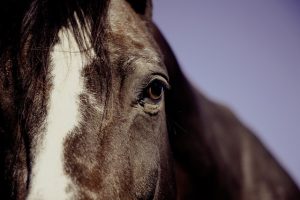By NewsDesk @infectiousdiseasenews
New Jersey agricultural officials are reporting a equine case of Eastern Equine Encephalitis (EEE) in a 12-year-old mare in Ocean County.

The horse had been previously vaccinated against EEE in April 2019 and was euthanized on July 23, 2019. This is the first case in New Jersey this year.
“Horse owners need to be vigilant in vaccinating their animals against diseases spread by mosquitoes,” New Jersey Secretary of Agriculture Douglas H. Fisher said. “Vaccinated animals are much less likely to contract deadly diseases such as EEE and West Nile Virus.”
EEE causes inflammation of the brain tissue and has a significantly higher risk of death in horses than West Nile Virus infection. West Nile virus is a viral disease that affects horses’ neurological system. The disease is transmitted by a mosquito bite. The virus cycles between birds and mosquitoes with horses and humans being incidental hosts. EEE infections in horses are not a significant risk factor for human infection because horses (like humans) are considered to be “dead-end” hosts for the virus.
In 2018, New Jersey had five cases of EEE and one case of West Nile Virus (WNV).
Vesicular Stomatitis update: 100 premises quarantined in 3 states
Anthrax in Texas update: Eight premises in three counties
North Carolina veterinarian warns about Asian longhorned ticks


2 thoughts on “New Jersey: Eastern Equine Encephalitis reported in Ocean County horse”